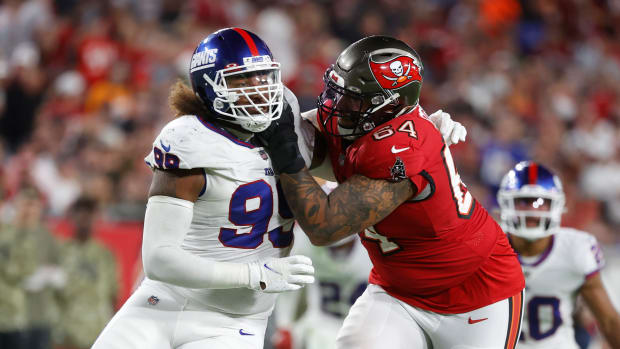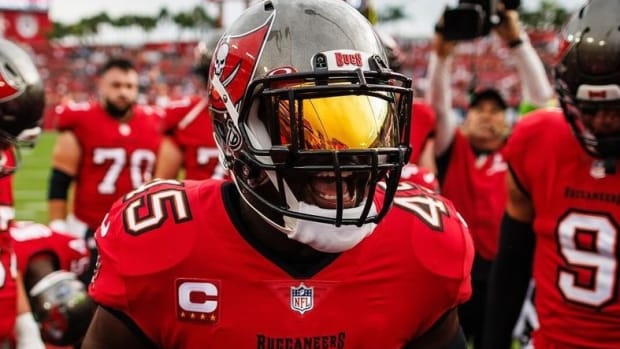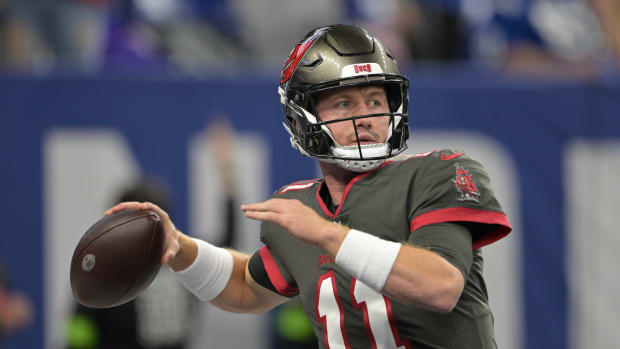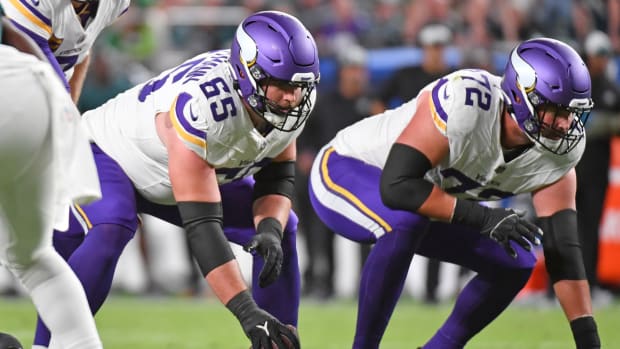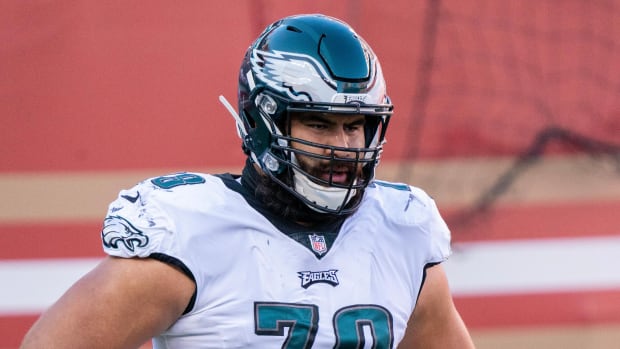If Tom Brady Retires, Could the Buccaneers Opt for Kyle Trask as Their QB?
Although the NFL world — no, rather, the entire world — awaits official word from Tom Brady about his future in football, reports have run wild suggesting that the seven-time Super Bowl champ and three-time league MVP will indeed retire with 22 seasons under his belt.
Should that be the case, it leaves the Tampa Bay Buccaneers in an uncomfortable position, needing to replace the greatest quarterback of all time.
AllBucs has already assessed five potential replacements for Brady, mostly quarterbacks from outside of the organization. However, there is another option that will certainly be given a chance to prove himself as Brady's heir, as the Buccaneers utilized significant draft capital to acquire the signal-caller less than a year ago.
That is former Florida quarterback and Bucs' 2021 second-round pick Kyle Trask.
Now, before diving into why Trask should earn a chance to replace Brady, it must be made clear that no one should expect Trask to perform up to the standards that Brady set. Those would be unrealistic expectations for, quite seriously, any signal-caller to fill Brady's shoes.
That being said, the Bucs believed in Trask enough to draft him over players who could have contributed in 2021 as the team aimed for a second consecutive Super Bowl run. Instead, Tampa Bay's second-round pick rode the bench for a year, inactive every game along the way, developing slowly in practice and learning from the best of the best without the stress of playing for a playoff-caliber team in year one of his career.
This was the Buccaneers' plan all along for Trask. Now, should Brady officially step away, it's time to see if the investment and plan were worthwhile.
Trask was certainly an intriguing prospect a year ago, even though he wasn't considered a top-tier quarterback in the 2021 NFL Draft as first-round picks Trevor Lawrence, Zach Wilson, Trey Lance, Justin Fields and Mac Jones were.
A Heisman finalist during his final season with the Gators, Trask established himself as one of the most productive quarterbacks in UF and SEC history. Tossing for 4,283 yards and 43 touchdowns compared to just eight interceptions, Trask displayed great accuracy and poise as a pocket passer with the ability to push the ball down the field. He is in no way a dual-threat quarterback, but is athletic enough to maneuver within the pocket and extend passing plays when need be.
From a scheme fit perspective, given his skill-set and year within the system, Trask is an ideal candidate to slide into Brady's spot should the reports of his imminent retirement be true. He is cost-effective as well, compared to any trades or free agent signings, given the nature of his rookie contract.
Opting for Trask as the starter would save the cap space necessary for Tampa Bay to retain free agents such as wide receiver Chris Godwin, running back Leonard Fournette, center Ryan Jensen, cornerback Carlton Davis III and/or others.
Now, going down this path would certainly present the Buccaneers with some risk. Second-round quarterbacks typically don't carve out the same careers as first-rounders, and obviously, proven commodities that would be acquired via free agency or a trade present a higher floor.
Especially when you consider that Tampa Bay's roster, although it will undergo some change this offseason, is capable of another playoff push from a talent perspective.
But, again, the Buccaneers put a development plan in place for Trask with the idea that he would one day emerge as Brady's heir. It appears as though the time to assess Trask's development, and if the plan was sound, could be coming in the very near future.
Stay tuned to AllBucs for further coverage of the Tampa Bay Buccaneers, and other NFL news and analysis. Follow along on social media at @SIBuccaneers on Twitter and Tampa Bay Buccaneers on Sports Illustrated on Facebook.

